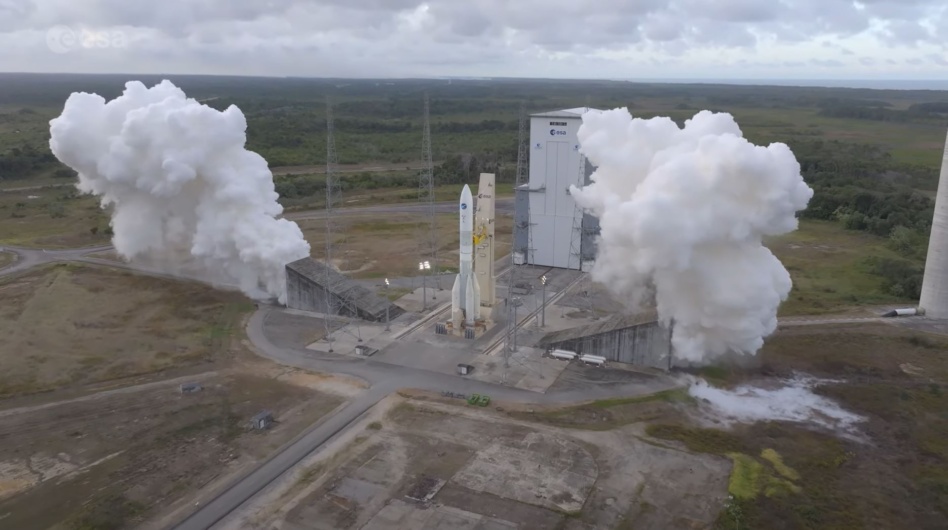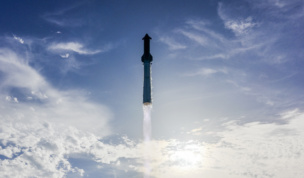While many of us west of the Atlantic were occupied by copious amounts of turkey and mashed potatoes, our friends across the pond were focused on the arguably more exciting task of firing new rocket engines.
On Thursday, ESA conducted a long-duration hot fire of the Ariane 6 core stage. The engines fired for a little over seven minutes—just short of the eight-minute target announced in advance—and the agency declared the test a success in a statement afterward, putting Europe one step closer to having a domestic rocket again after a months-long gap.
“We are back on track towards re-securing Europe’s autonomous access to space,” ESA head Josef Aschbacher said in a statement.
Europe targets flight: Europe’s space industry and government stakeholders are watching closely as Ariane 6 inches toward operational flight.
- The workhorse Ariane 5 rocket flew its last mission in July, and since then, the continent has gone without a working homegrown rocket.
- It doesn’t help the situation that ESA ended its use of Soyuz rockets after Russia’s invasion of Ukraine.
Aschbacher has repeatedly stated that ensuring Europe has consistent, domestic access to space is a top priority for ESA under his tenure. Alongside Ariane 6 development, ESA is also backing a handful of commercial European rocket startups, including Skyrora, Orbex, Isar Aerospace, and Rocket Factory Augsburg.
Put to the test: The long-duration hot fire test was designed to fire the Vulcain 2.1 engine for as long as it would need to burn during an actual mission. Before the test, ESA announced that it was aiming to reach 470 seconds. In the end, the test lasted for 426 seconds, but ESA and its partners still declared the test successful.
What’s next? The core stage hot fire test was one of the last few milestones to be ticked off before ESA attempts a maiden launch. The last step is a hot fire of the second stage, which is expected next month, at which point ESA will make the decision on when to attempt a real flight.




